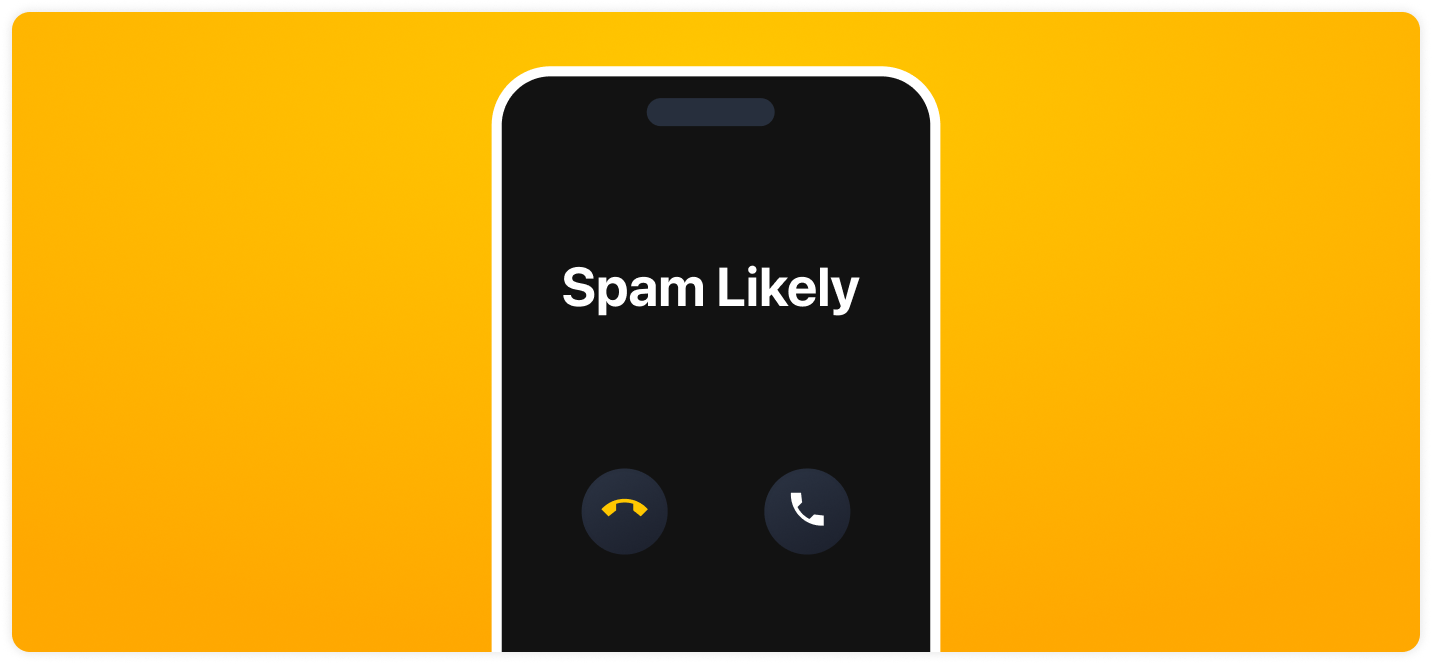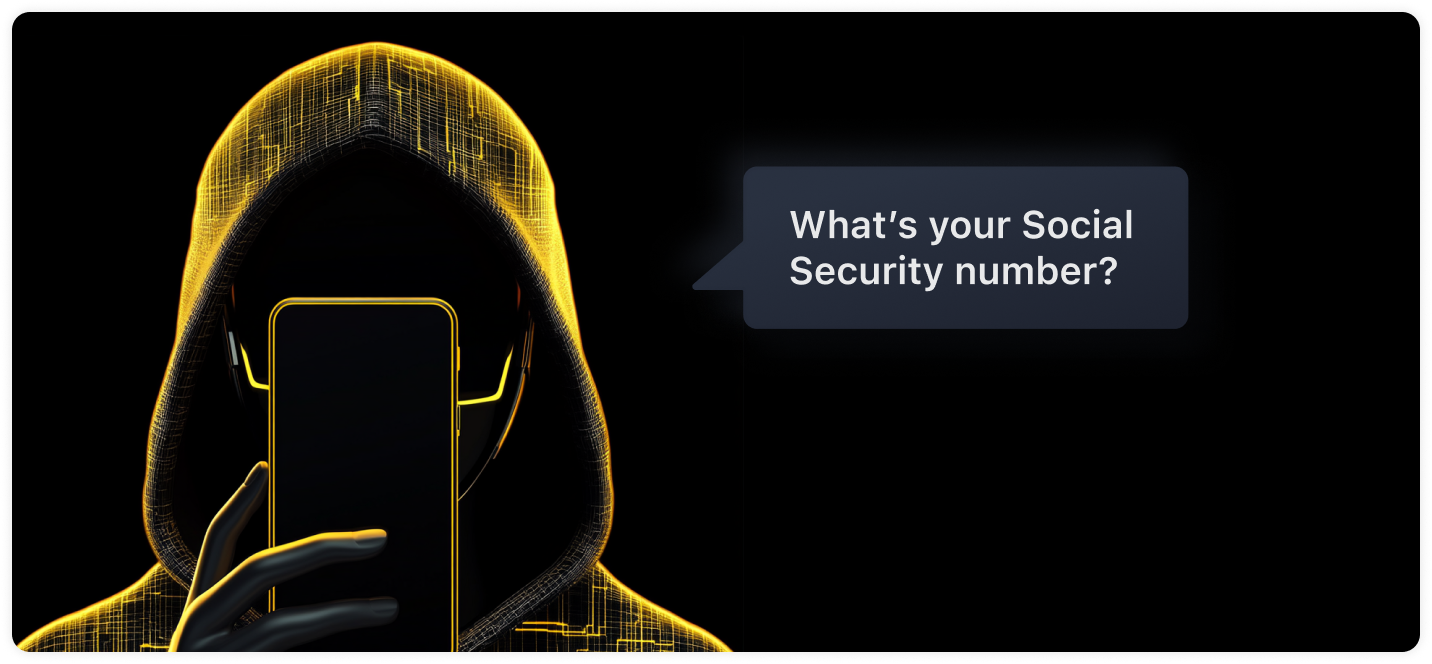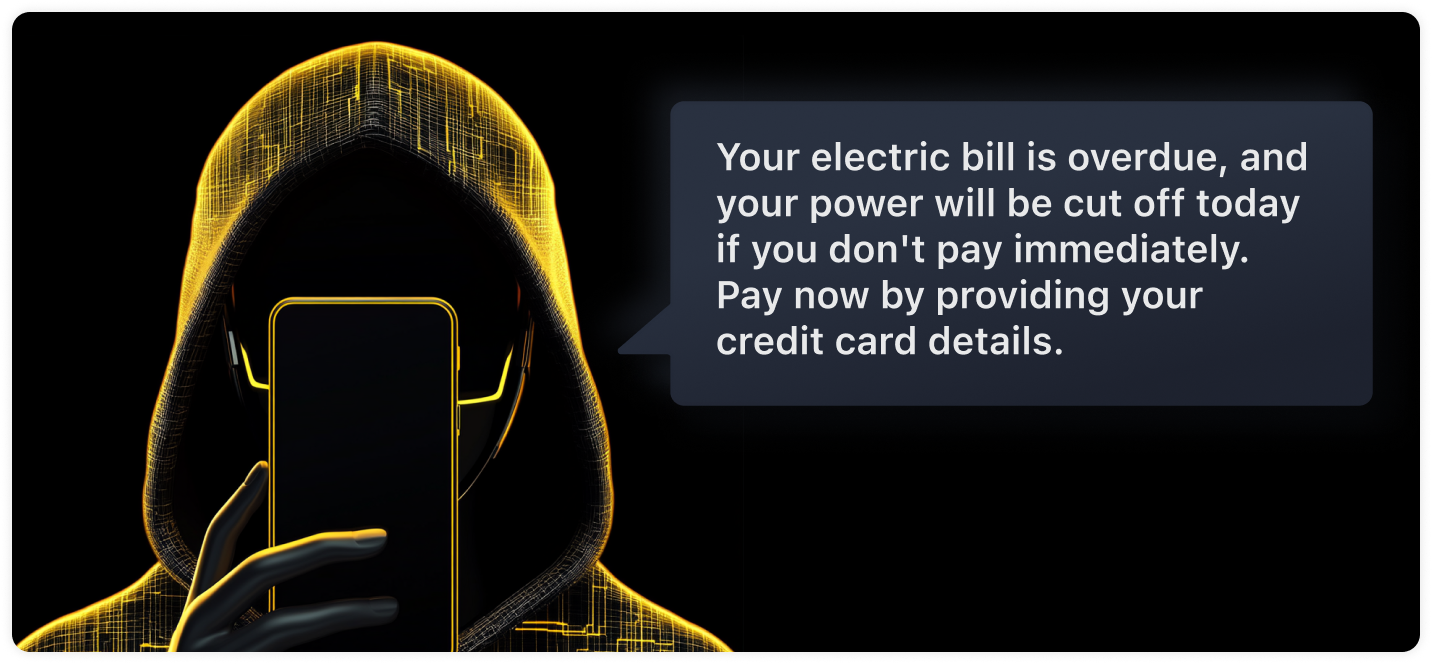The main difference between an attack vector and an attack surface is that an attack vector is the specific way a cybercriminal can take advantage of
If you accidentally answer a spam call, scammers know your number is connected to a real person and can target you with more spam calls. These targeted spam calls will try to trick you into giving up your personal information which allows cybercriminals to steal your money, your identity and even your voice. You should avoid answering spam calls to help prevent cybercriminals from trying to steal your personal information.
Continue reading to learn more about spam calls, how to identify them, how cybercriminals can exploit you using spam calls and how to stay protected against spam calls.
What Are Spam Calls?
Spam calls are unwanted phone calls made to a large number of people from an unknown source. Spam calls typically come from businesses trying to sell you something. However, some spam calls are considered scam calls, which are unsolicited phone calls that claim to be from a person or company they are not.
These scam calls use social engineering tactics, similar to phishing, to get people to believe in a fake scenario in which the scammer is pretending to be someone they are not. Scam calls are either done by a real person or a pre-recorded message known as a robocall. The scammer will try to impersonate a legitimate business or entity to trick people into giving up their personal information. They use call spoofing to hide their caller ID information and make it appear like the call is coming from a different person and location.
How To Tell if You’re Dealing With a Spam Call
You receive many phone calls that can either be from a legitimate organization or from scammers. You need to look out for the following to identify if you are getting a call from a scammer.
There is a “spam/scam likely” warning displayed on your phone
If you are receiving an unsolicited phone call from a number you do not know or do not remember giving out your number to, it is most likely a spam call. Some devices will automatically detect and identify spam calls and display a warning message of a “spam/scam likely” to help you avoid answering these calls.
The caller uses a pre-recorded message
Although many legitimate businesses such as healthcare providers and charities use pre-recorded messages to contact people, cybercriminals also use pre-recorded messages to make thousands of spam calls. If you receive a pre-recorded message from an unsolicited phone call, it is most likely a spam call, and you should hang up immediately.
The caller asks you to provide personal information
Many spam calls try to appear as familiar entities such as the government, banks and healthcare providers. They will try to trick you into giving up your personal information such as your Social Security number. However, legitimate businesses should already have your personal information on file and would never ask for it over the phone. If you’re asked to provide personal information on a call you did not initiate, then it is likely a scam.
The caller uses a sense of urgency
Scam calls will contact you regarding an urgent request to pressure you into giving up your personal information without allowing time to think it over clearly. Scammers will often call regarding a technical, banking or tax issue to manipulate you to take action and comply with their instructions. They often threaten you with some sort of punishment if you don’t follow their instructions, such as a fraudulent charge, fine or malware on your device.
The caller offers a too-good-to-be-true deal
Some scammers will portray themselves as a business trying to sell a great deal or trick you into thinking you won something over the phone to hook you in and rip you off. These too-good-to-be-true offers can include winning a sweepstakes, a free item or a large discount. Don’t be fooled by these offers. If the offer seems too good to be true, then it probably is.
The caller asks for payment
Cybercriminals will often impersonate banks, debt collectors or other large companies. They will call you regarding some sort of unpaid charge you need to pay to avoid jail time or prevent losing your account. However, you probably don’t recognize anything the phone call is talking about. If a phone call is asking for some sort of money, especially if the payment is in gift cards, then it is most likely a spam call.
How a Spam Call Can Exploit You
Spam calls have the goal of taking advantage of you by gaining your trust and exploiting you. If you answer a spam call, cybercriminals can exploit you by:
Targeting you for more scams
Cybercriminals will make thousands of spam calls to figure out who within their list of numbers is real and which numbers have been disconnected. When you pick up a spam call, then you let the cybercriminal know that your number is real and that you are willing to pick up their calls. With this information, cybercriminals will try to call you again to scam you into giving up any personal information or money.
Stealing your money
Spam calls often try to portray themselves as financial entities such as your bank or debt collector. Cybercriminals will often ask you to make a payment to resolve some sort of issue they are having on their end such as unpaid debt or charges. They may also ask to confirm your bank account information, which would give them access to your bank account. Once they have access to your bank account, cybercriminals can take out your money or make fraudulent charges.
Stealing your identity
Cybercriminals will try to trick you into giving up your personal information. They will try to impersonate legitimate organizations such as healthcare providers, banks and other companies wanting to confirm your personal information. If you fall for their scams and give up your personal information, cybercriminals can use it to commit identity theft.
Identity theft is when someone uses a victim’s personally identifiable information without their permission to impersonate the victim and commit fraud. Identity theft can leave damaging effects on the victim such as financial loss, debt, damaged credit and potentially a criminal record.
Recording your voice for vishing attacks
By answering a spam call and speaking to the scammer, scammers can record your voice and use it for vishing attacks. Vishing is a type of phishing that uses voice calls to trick people into doing something. Often, cybercriminals try to impersonate a familiar voice to a victim to gain their trust.
When you speak to a spam call, cybercriminals can record your voice and use AI to impersonate the recorded audio clip. The cybercriminal will then use the AI impression to trick your family members into giving up personal information such as login credentials.
How To Stay Protected Against Spam Calls
Spam calls have been around for a long time, but cybercriminals are taking advantage of new technologies to help scam people and steal their personal information. Although it is almost impossible to stop receiving spam calls, you can stay protected against spam calls by doing the following.
Avoid answering or interacting with spam calls
You should avoid answering or interacting with any unsolicited phone calls you are receiving. It is most likely a scam call trying to trick you into giving up your personal information. By avoiding answering spam calls, you can reduce the number of spam calls that you receive. If the call was from someone legitimate, they will most likely leave a voicemail and you can return their call after confirming their identity.
Block and report numbers from scammers
If you accidentally answer a spam call, do not respond to the call and hang up immediately. You should then individually block that spam number from your phone and report it to the Federal Communications Commission (FCC) to help stop spam callers from attacking other people. You can also set up settings on your phone to help stop receiving notifications of phone calls from unknown callers.
Contact your phone service provider for spam-blocking services
Some phone service providers offer spam-blocking services that will help block many spam calls. You should contact your phone service provider to see if they offer a spam-blocking service to help you avoid getting contacted by scammers. Although this service will not block all spam calls from reaching you, it provides an extra layer of security and will help prevent falling for these types of scams.
Get a spam-filtering app
If your phone service provider does not offer spam-blocking services, you can get a third-party spam-filtering app that will detect and block most incoming spam callers from reaching you. These third-party spam-filtering apps have a database of known and reported spam numbers. Some apps constantly update their database to help them detect and block new spam numbers. Like spam-blocking from phone service providers, these third-party apps won’t completely stop spam callers from reaching you but will help you avoid falling for these types of scams.
Sign Up for the Do Not Call Registry
The Do Not Call Registry was originally created to prevent telemarketers from legitimate businesses from reaching you. However, you can use the Do Not Call Registry to help you identify and ignore any spam calls. When you join the Do Not Call Registry, you block calls from telemarketers and reduce the number of unwanted calls. Since telemarketers are blocked, you’ll know that any incoming spam call is most likely from a scammer and can ignore it.
Avoid Falling Victim To Spam Calls
Although cybercriminals cannot steal your information just by you answering a spam call, you should still avoid answering them to prevent them from targeting you more and falling for their scams. You should never give out your personal information over the phone unless on a call that you initiated to a trusted source, such as your doctor’s office. If you do, you risk getting your money, identity and voice stolen by cybercriminals who can use it for malicious purposes. Block all known spam numbers and sign up for the Do Not Call Registry to stay protected against spam calls.
 Cybersecurity
Cybersecurity 





